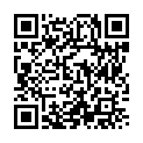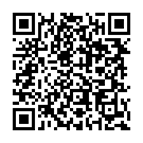Note: If you have had a suspected first seizure, you should go to the nearest Emergency Department for further assessment.
If tests do not show any concerning findings and you have recovered from the seizure, you will be discharged from the Emergency Department. You should then follow up with your primary health care provider. You may also be referred to the First Unprovoked Seizure Clinic.
A seizure is considered unprovoked when an assessment and investigation finds no clear, immediate cause.
How do I prepare for my appointment?
Keeping a record of all the details of the event is very helpful.
If someone witnessed your seizure, please bring them with you to your appointment so we can talk with them.
We will ask for a detailed history of the seizure from you and your witness (if there was one). Getting a clear description of the event is one of the most important parts of trying to figure out if you have had a seizure. What the witness saw may be different from what you remember.
Keeping a record of all the details of the event is very helpful.
What will happen at my first appointment?
Your first appointment at the Clinic will take up to 90 minutes (an hour and a half). We will review your medical, family, and social history, and do a physical neurological exam.
If someone witnessed your seizure, please bring them with you to your appointment so we can talk with them.
We will ask for a detailed history of the seizure from you and your witness (if there was one). Getting a clear description of the event is one of the most important parts of trying to figure out if you have had a seizure. What the witness saw may be different from what you remember.
We will ask you things like:
- How were you feeling before the event happened?
- What were you doing before the event started?
- How did you feel as the event happened?
- What do you remember about the event?
- How did you feel after the event?
- Were you injured, sore, or sleepy after the event?
We will ask the witness things like:
- What was the person doing before the event started?
- Did the person mention any unusual feelings?
- How did you know the person was having trouble?
- Was the person confused or having any other trouble functioning?
- Did the person collapse? What did that look like?
- Was there a change in the person’s breathing or colour?
- Did the person have any movements of their body or limbs (arms and legs)?
- How long did the event last?
- What was the person like after the event?
- When was the person back to normal?
Tests that may be done
Depending on your situation, you may have:
- an EEG (electroencephalogram). This painless test gives info about the electrical activity of your brain. It looks for abnormal patterns that might suggest a higher risk for seizures.
- a sleep-deprived EEG. This test is the same as a regular EEG, but it takes longer and is done after you have stayed awake for most of the night before the test.
- further brain imaging with an MRI (Magnetic Resonance Imaging) neuropsychological (thinking skills, such as attention, memory, and problem solving) testing
Will there be any follow-up?
The attending practitioner from your appointment will let you know if there will be any follow-up.




